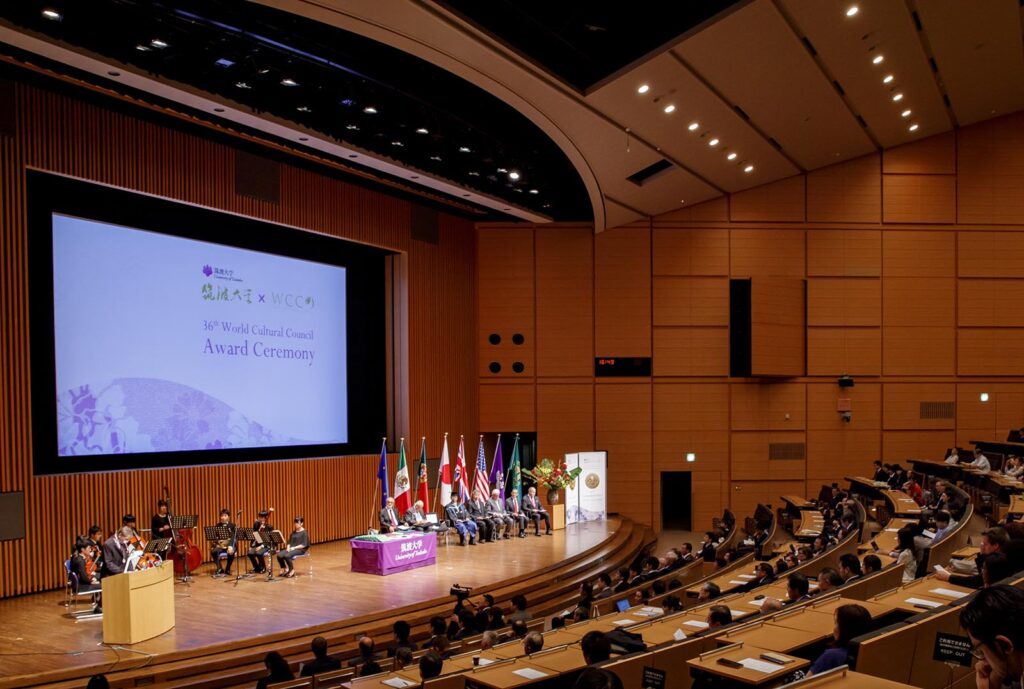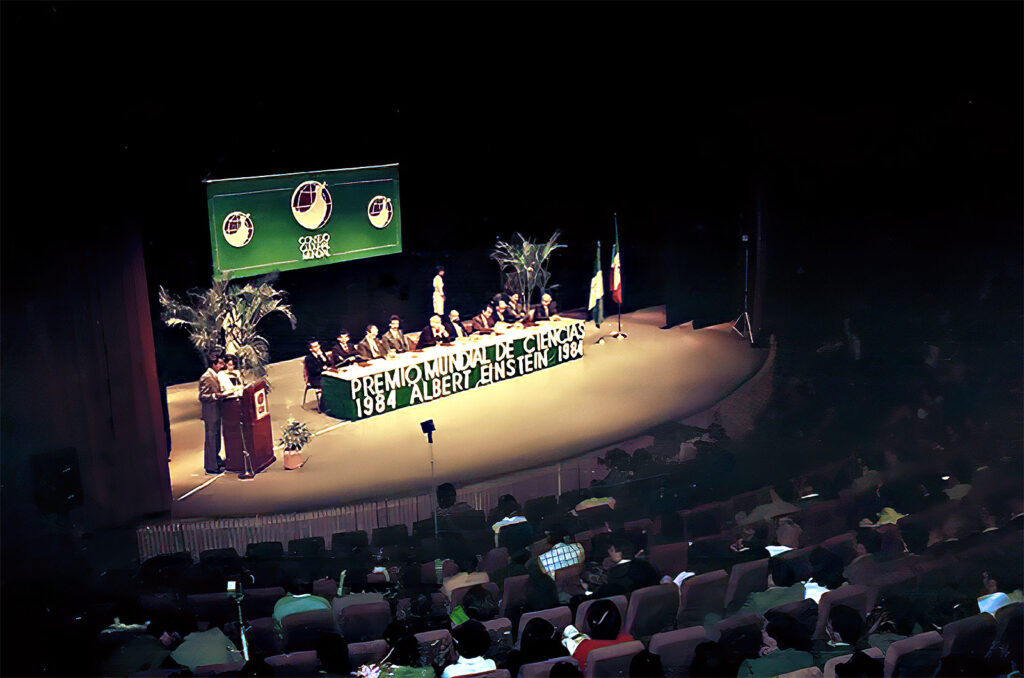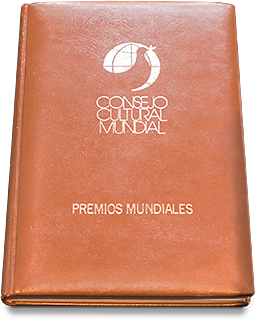Introduction to the World Cultural Council
The World Cultural Council is a non-profit international organization, founded in Mexico, whose objectives are to promote culture, values and goodwill throughout the world. One of the means by which it strives to do so is by granting the Albert Einstein World Award of Science, the José Vasconcelos World Award of Education and the Leonardo da Vinci World Award of Arts to outstanding personalities whose work has had a significantly positive impact on the cultural legacy of humankind. The members of the Council include several Nobel laureates.
It was in 1982, on the inspiration of 124 distinguished scholars, university presidents and organization executives from the world over, that the WCC was founded and, in 1984, the first Award Ceremony took place.
The World Cultural Council is composed of a directing body headed by an Honorary President, Vice-president, Executive Director, Secretary General and an Interdisciplinary Committee made up of outstanding scientific, artistic and educational personalities.
The Interdisciplinary Committee evaluates annually the candidates nominated to participate in the “Albert Einstein“, the “José Vasconcelos” and the “Leonardo da Vinci” Awards.

In 2019, the Awards Ceremony was held at the University of Tsukuba, Japan. Dr. Zhong Lin Wang and Paulo Branco were awarded the science and arts awards respectively.

The first World Cultural Council Award Ceremony was held in 1984 in Monterrey, México. The Albert Einstein World Award of Science was granted to Dr. Ricardo Bessani.
Brief History of the WCC
The World Cultural Council (WCC) was established in 1982 with a vision of contributing to a culture that inspires the inhabitants across the planet to join together towards a better world, respecting differences between people, promoting progress, and celebrating the achievements of human creativity. Founded by a distinguished group of renowned scientists, scholars, artists, and academic leaders from all continents, the WCC has been at the forefront of celebrating and promoting the achievements in various fields of human endeavor.
One of the most pivotal moments in the WCC’s history was its inaugural awards ceremony in 1984. This event set the precedent for the Council’s ongoing commitment to recognizing outstanding achievements across multiple disciplines. The WCC has annually granted the “Albert Einstein” World Award of Science and every second year (alternately), the “José Vasconcelos” World Award of Education and the “Leonardo da Vinci” World Award of Arts.
Since 1984, the prestigious award ceremonies have been hosted by leading universities and institutions across the globe. Moving the ceremony each year underscores the Council’s international scope and its determination to foster cultural and scientific exchange worldwide.
Membership in the WCC has grown from the initial group of 124 outstanding individuals to now include more than two hundred authorities from over 35 countries. WCC members are world-renowned personalities and academic leaders in their respective fields including several Nobel laureates. WCC members constitute the Interdisciplinary Juries which decide on the winners for each year’s awards.
In order to promote diversity and encourage future generations, in 2003 the WCC initiated the practice of presenting special recognitions to young scientists, artists, and educators from the home country of the institution hosting the award ceremony. These are bestowed upon individuals who have achieved outstanding performance early in their careers as they pursue ground-breaking and impactful work.
Throughout its history, the World Cultural Council has remained steadfast in its commitment to acknowledging and fostering excellence in the arts, sciences, and education. The Council’s ongoing efforts reflect its enduring dedication to celebrating human achievement and contributing to the global cultural and scientific heritage.
The WCC – an Advocate of Culture, Science and the Arts
The World Cultural Council has had an illustrious journey over the years, consistently growing and transforming into the outstanding organization that it is today. Spearheading the recognition and appreciation of outstanding individuals as role models and their contributions to the cultural heritage of humankind, the Council has emerged as a significant force in the promotion of a culture of tolerance, peace, and fraternity as it embraces a vision of diversity and mutual respect towards a better world.
Further reading
Read more about the awards.


